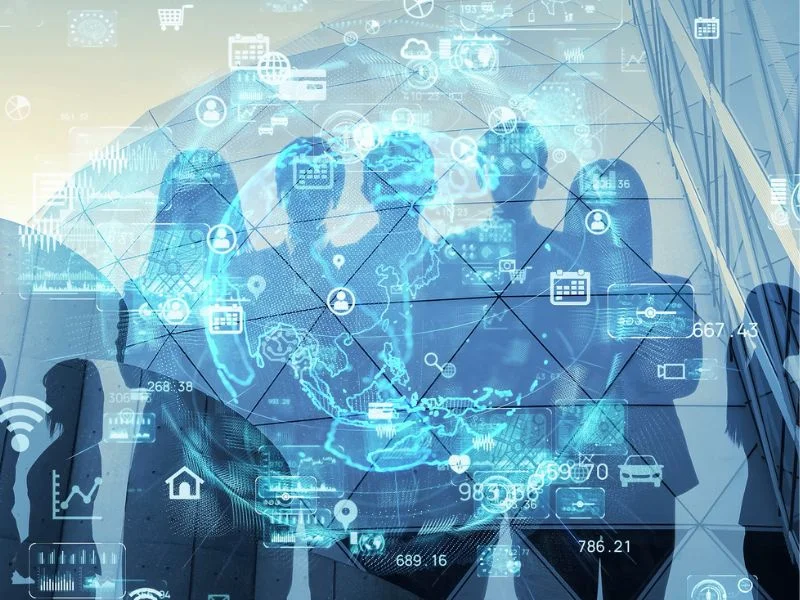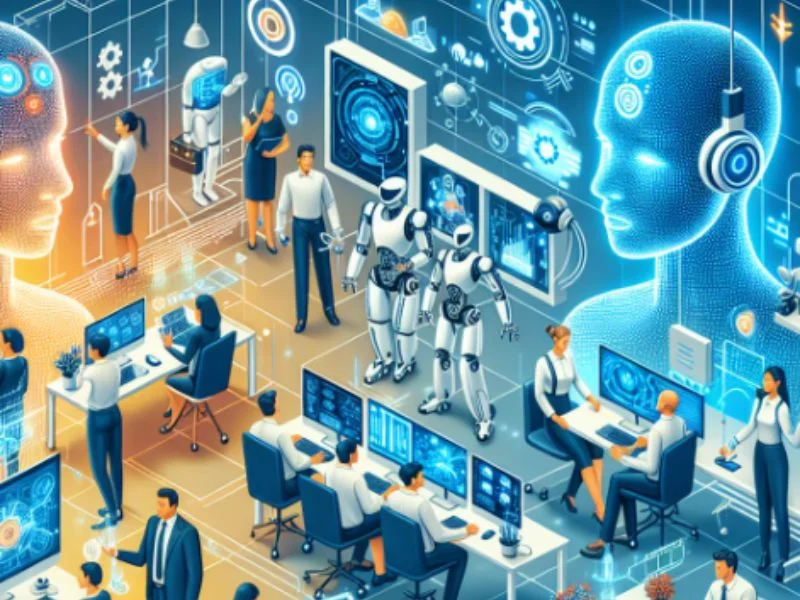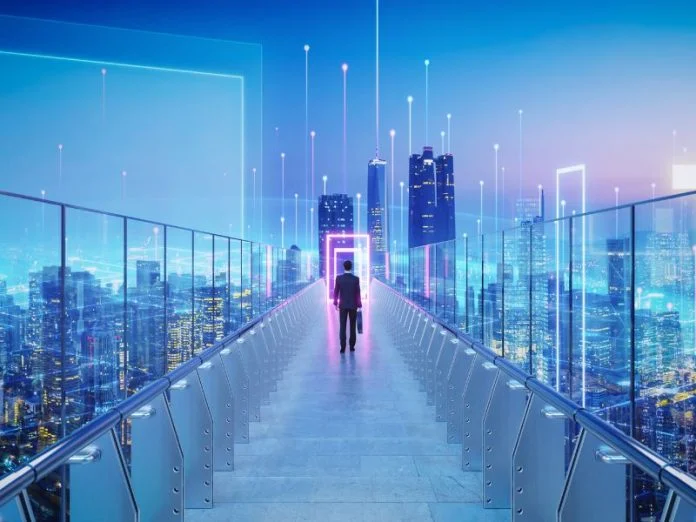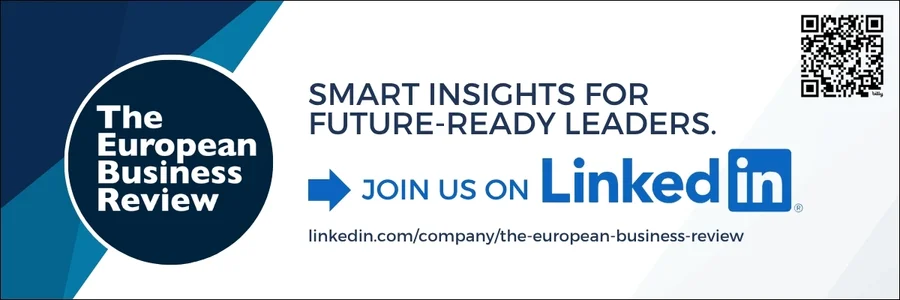By Dr. Simon L. Dolan, Dr. Mario Raich, and Iolanda Triviño
In an ever-evolving job market, embracing the future requires us to adapt and acquire new skills. Our article, “Equipping for Tomorrow: Unlocking New Skills for the Future of Work in 2033”, emphasizes the importance of leaving behind outdated skills and upskilling for the new landscape. Let’s foster a sense of optimism and readiness for the opportunities ahead!
Introduction
In a rapidly changing job landscape, embracing the future means adapting to new skills and opportunities. The title “Equipping for Tomorrow: Unlocking New Skills for the Future of Work in 2033” not only captures the essence of our message but also instills a sense of optimism and preparedness for what’s to come.
We hope this article will encourage you (the reader) to view the future as a realm of opportunities rather than challenges, and invites you to explore how you (and others in your firm) proactively cultivate the skills necessary to thrive in the evolving workplace.
According to Fred Eichwald in a recent German article, we can anticipate that by 2030, a staggering 70% of job skills will transform. He emphasizes that essential soft skills—such as adaptability, empathy, conflict resolution, and resilience—will be paramount for future success in the workforce.2
Adding to this insight, Simon L. Dolan, president and co-founder of the Global Future of Work Foundation, reveals that a study jointly conducted by the foundation and the Institute for the Futures (at Valkiria) in Barcelona’s innovative 22@ digital district, shows clearly that it’s not always the largest companies that come out on top; but those that are agile and innovative that manage to revolutionize their industries.3 This same study coined “DDOT – Digital Dictionary of Occupational Titles” reported that the most successful professionals in the technology industry were not those who mastered the latest APPs and technology, but those governed by a variety of soft skills that will be specified hereafter.
Considering these findings, we must adapt our understanding of the skills and competencies needed for tomorrow’s job market. Dolan highlights a crucial distinction between two types of skills: “hard” skills, which encompass essential knowledge and expertise, and “soft” skills, which are often more challenging for employers to find. These soft skills are emerging as key attributes that will enhance employability in the future.
This is an encouraging message for all of us. While the job market is evolving, it also opens numerous opportunities for personal and professional growth. Embracing the development of both hard and soft skills will not only ensure your relevance in the future workplace but also empower you to thrive in an ever-changing environment. Some of the critical emerging future skills include:
- The ability to search for information and create trusted networks. It is necessary to have a professional who knows how to find vital information at the right time. In a world oversaturated with information, locating the information that really matters is complicated.
- Having proficiency in different languages and computer skills. Globalization makes it necessary to speak several languages; one language is no longer sufficient.
- Being creative (cognitive skills). The ability to learn, unlearn and relearn. Do not be afraid to get involved. When you do something new, you can make mistakes, but the basis is that you must learn constantly.
- The ability to negotiate and renegotiate, even with your worst enemy. Managing conflicts as a source of learning and managing stress and promoting well-being.
- Being proactive. The employees of the future will have to move with passion, always on the lookout for innovation.

What are the skills to be employable in 2030? Xavi Olba a consultant in digital strategy and innovation and member of the 22@ Community, talks about a basic skill for the job seekers of the future: “They must not be great possessors of knowledge, but they must be great managers of knowledge”. In addition, they must have highly developed emotional intelligence. To his list, he adds another set of core competencies.4
- The 2030 candidate must be himself, know what he wants and be honest. You must know the values that move you.
- You must know that things don’t often happen the first time and that you need to give your teams time.
- A much-overlooked skill is humility. Someone humble, Olba says, knows himself very well and knows his strengths and areas for development. He allows himself to be helped by his people. It is clear to him that he does not have an answer for everything. And, most importantly, they are passionate about continuous learning, but always from practice.
- Great Attitude. In other words, they are always on their best behavior. When he has to row, he rows. But when he must put his mind to it to see where the boat is going, he does.
What does this mean for you, your team and your company? Is there a reason for optimism?
In today’s rapidly changing landscape, we find ourselves amidst a whirlwind of technological leaps, social upheavals, and economic fluctuations that seem to redefine the world of work with each passing quarter. The pace of transformation is relentless, making what is relevant today feel outdated tomorrow. It’s easy to feel overwhelmed in this environment, but it’s also essential to recognize the immense opportunities that these changes bring.
According to LinkedIn, 70 percent of the skills required in today’s professions will change by 2030.5 This is not a fictitious prediction of the future – it is a diagnosis of the present with an announcement. However, the reactions to this range from stoic ignorance to the hectic acquisition of further certificates. What is missing is a systemic rethink – among employees, managers and at the executive level. Also missing is a deep reflection of society leaders, including politicians and academics, in designing, charting and preparing for the new future of work. It is easy to be trapped in pessimism and agony, perhaps it will be better to draw a more optimistic scenario.
Let’s take a moment to reflect on the magnificent potential of this technological revolution. Artificial intelligence and automation are not merely threats to job security; they are powerful tools that can enhance productivity and free individuals from mundane tasks, allowing them to focus on creativity, innovation, and problem-solving. This shift invites us to rethink our roles and encourages an era of upskilling and reskilling. By embracing continuous learning and adaptability, every employee — regardless of position — can become empowered architects of their own career paths.
By embracing change and fostering a growth mindset, we enable ourselves — and our organizations — to innovate, evolve, and lead in this new era.
Social changes are prompting fresh perspectives on work-life balance and employee well-being. As we navigate these shifts, organizations could foster inclusive cultures that value diversity and encourage every voice to be heard. When we embrace these changes, we cultivate environments where collaboration and creativity flourish, leading to innovative solutions that address today’s challenges.
Moreover, while economic crises may add pressure, they are also catalysts for resilience and innovation. Businesses are being pushed to rethink their models, driving them to find creative ways to thrive in uncertainty. Those who embrace agility will not only weather the storm but emerge stronger and more adept at navigating future challenges.
There is no turning back, but that’s a good thing. The world of work is evolving, and you have the chance to be at the forefront of this transformation. Adaptation is not just survival; it’s an opportunity to thrive in a landscape rich with potential. By embracing change and fostering a growth mindset, we enable ourselves — and our organizations — to innovate, evolve, and lead in this new era.
So let us step boldly into the future together. Embrace the possibilities that technological advancements offer, champion social inclusivity, and harness resilience in the face of economic challenges. Together, we can navigate this dynamic world of work, transforming it into a landscape that not only benefits businesses but enriches our lives, careers, and communities.
In our rapidly evolving world, the pace of change can be both exhilarating and daunting. Technological leaps are reshaping the landscape of work, creating new opportunities that once seemed unimaginable. Every day, we witness advancements in artificial intelligence and automation, fundamentally altering how we operate and interact within our professional spheres. With these shifts come social upheavals that challenge our traditional mindsets and expectations about career trajectories and job security.
Yes, economic crises may seem to spring forth with alarming regularity, but within each crisis lies the potential for innovation and transformation. Instead of viewing these fluctuations as setbacks, we can harness them as catalysts for growth. The truth is that the world of work is in a state of permanent transformation, and embracing this evolution is crucial for our personal and collective success.
What was relevant yesterday may no longer have significance today, but rather than fearing obsolescence, let’s focus on the incredible opportunity for reinvention. This is our moment to be proactive learners and agile thinkers, ready to adapt and thrive in the face of change.
The landscapes of our careers are evolving at an unprecedented pace, calling for new skills, new strategies, and fresh perspectives to navigate the shifting terrain effectively. This can be an exciting journey—a call to explore uncharted territories and unlock your full potential.
The key lies in our willingness to embrace lifelong learning, cultivate curiosity, and step outside our comfort zones. Seek out professional development opportunities, engage in conversations with diverse teams, and immerse yourself in the latest innovations within your industry. Each step you take, no matter how small, contributes to your own growth and the brighter future of your organization.
And, what about the management of talent in this new landscape?
With the extraordinary advancements in technology, the landscape of recruiting and human resources is undeniably transforming. Tools like ChatGPT, automated recruiting systems, and generative AI models are reshaping how we connect, assess, and engage with talent. These innovations promise efficiency, increased productivity, and data-driven decision-making. However, amid this technological leap, we must shine a light on a crucial aspect that often gets overshadowed: the social, communicative, and psychological development of professionals in the field.
As we plunge into this new frontier of automated solutions, we risk creating a widening gap between rapid technological progress and the soft skills necessary for effective human interaction. Emotional intelligence, empathy, active listening, conflict resolution, and cultural awareness are timeless skills that form the bedrock of meaningful interpersonal relationships and effective teamwork. Unfortunately, the pace of technological adoption often leaves little room for nurturing these vital human qualities, leading to a dichotomy that could hinder the overall effectiveness of our workforce.
Organizations must prioritize the development of their professionals alongside the integration of cutting-edge technology. By actively investing in training programs that focus on interpersonal skills, we can ensure that our workforce is not only proficient in using advanced tools but also equipped to thrive in an increasingly complex social landscape.
Companies that cultivate a culture of continuous learning and emotional growth will attract and retain top talent, who see value in an organization that invests in their holistic development.
Encouraging collaborative workshops, mentorship initiatives, and open dialogues can foster an environment where professionals enhance their emotional and social competencies. By pairing the power of AI with the art of human connection, we can create a balanced ecosystem that benefits individuals and organizations alike. Moreover, recognizing and addressing this gap can become a competitive advantage. Companies that cultivate a culture of continuous learning and emotional growth will attract and retain top talent, who see value in an organization that invests in their holistic development. Let’s spotlight this essential element of the workforce equation and advocate for a comprehensive approach to professional growth that harmonizes technological prowess with empathetic and effective communication.
In other words, while we stand at the precipice of a remarkable technological future, we must not overlook the human element at the heart of our professional experiences. By championing social and communicative maturity, we can ensure that our industries do not just keep pace with innovation but thrive in it, creating workplaces that are not only efficient and productive but also humane, inclusive, and thriving. Together, let’s embrace this journey for the betterment of everyone involved!
Some observations about Adaptability and the need for a new educational system
Hardly any other term is used so often and so rarely understood. This is because adaptability is often confused with mere flexibility, with the willingness to “think outside the box”. But it requires more: the ability to question established thought patterns, to rethink roles and not only to endure times of crisis, but to use them productively.
This form of inner flexibility is a psychological feat – especially for managers trained for years to exercise control and make quick decisions instead of self-critically questioning their own actions and demeanor.
But that is exactly what is needed now. Those who can no longer question themselves today will no longer be of any help to others tomorrow. And this is precisely where the problem lies: those who are supposed to lead and drive change are often incapable of change themselves.
There is a growing consensus that current education systems predominantly emphasize the acquisition of specialist hard skills, those technical competencies that can easily be quantified and measured. While these skills are undeniably important and necessary for specific job functions, they often overshadow the cultivation of essential soft skills that are critical for thriving in a dynamic work environment.
The current educational framework, focused on standardized testing and rigid curricula, often fails to equip students with these necessary soft skills. While students may excel at mastering specific subject matter, they may struggle to express their ideas, empathize with colleagues, or adapt to unexpected challenges in a real-world context. As we look to the future, we must reimagine education to promote a more holistic approach—one that values both hard and soft skills equally.
The good news is that change is already underway! Educators, employers, and policymakers are beginning to recognize the importance of developing a balanced skill set in students. Programs that incorporate project-based learning, teamwork, and real-world problem-solving are paving the way for more integrated approaches to education. Companies are also playing a pivotal role by offering internships and mentorship programs that blend hard and soft skill development, allowing young professionals to gain valuable experience that prepares them for the complexities of modern work.

By fostering environments that prioritize the growth and application of both hard and soft skills, we can empower the next generation to thrive. It’s a call to action for educators to reassess curricula, businesses to invest in comprehensive training programs, and individuals to embrace lifelong learning and self-improvement.
We hope that we can create a future where students and professionals alike are fully equipped to meet the challenges of tomorrow, ensuring not only their success but also the collective progress of our communities and industries. Let’s champion this new vision of education that values and nurtures all the skills necessary for a fulfilling and productive career—after all, the future belongs to those who are prepared to seize it with both technical proficiency and the essential human qualities that drive collaboration and innovation.
Conclusions: what is really Needed now?
The soft skills list mentioned in this article is a pointer – but it is not enough. What we need is not another course on “adaptability”, “resilience” or “creativity”, but an honest examination of the blind spots in our work culture. These include:
- Leadership must be rethought – as a service to the development of others.
- Education needs to realign itself – away from exam knowledge and towards a culture of learning, personal development and metacognitive skills.
- Companies that demand change must create conditions under which development is possible at all – with time, trust and qualified support.
- Employees need to realize that the greatest security today lies not in the job itself, but in the ability to develop oneself further.
While the soft skills listed in this article serve as valuable pointers for personal and professional growth, they represent only a starting point in the journey toward true workplace transformation. What we need is a sincere and thoughtful reassessment of the underlying blind spots in our organizational culture.
To foster genuine development, we must rethink leadership as a service dedicated to uplifting others and create a supportive environment where growth is prioritized. Education, too, must evolve, shifting its focus from rote memorization and exams to a culture that values lifelong learning, personal development, and critical thinking. Moreover, companies that are serious about driving change must commit to establishing an environment that empowers employees through the necessary time, trust, and expert guidance; this is essential to create a foundation for continuous development.
And finally, all employees must recognize that true job security in today’s fast-paced world lies not solely in their current positions, but rather in their capacity to adapt and grow. By embracing this mindset, we can cultivate a more resilient workforce equipped to meet the challenges of tomorrow. Let us all commit to this collective journey of reflection and change, building a brighter future together.



 Dr. Simon L. Dolan
Dr. Simon L. Dolan Dr. Mario Raich
Dr. Mario Raich Iolanda Triviño
Iolanda Triviño





